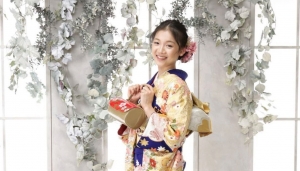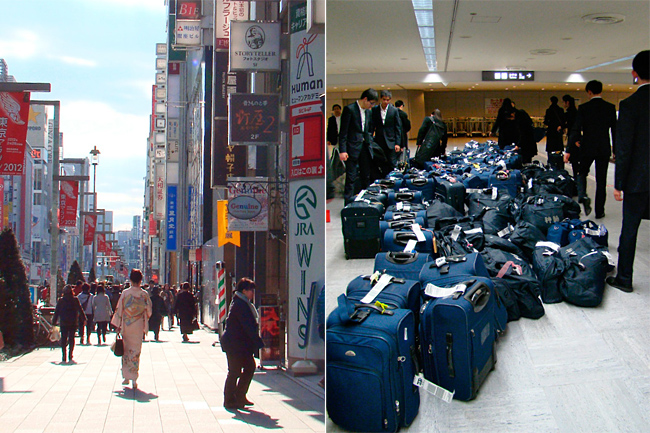
My Top 5 Japan Highlights
Lately our schedule has been so hectic that I really have found it impossible to keep everyone posted. But I finally found a smig of free time this morning, so I think I owe it to everyone to let you know what’s been happening so far in Asia (considering we’re already in Taiwan now).
So let's start with Japan. I figured it would be easiest to wrap it up with a “Top 5” of my highlights—there are just too many too cool things.
NUMBER 5: OVERRATED HONEYDEW MELONS
Apparently, in Japan honeydew melons are treasured as the “elixir of everlasting life.” When it's melon season, the farmers select the most promising melon on each vine and forsake the rest. They believe that concentrating all the nutrients on one young melon produces an exceptional fruit. And they take it seriously. These supernormal melons sell up to $400 each. I went to an average supermarket and was pretty mystified by the polished melons selling for ¥8670, or $105. It seems Japanese farmers are quite eccentric—cube-shaped watermelons, white strawberries? Not something you see every day.
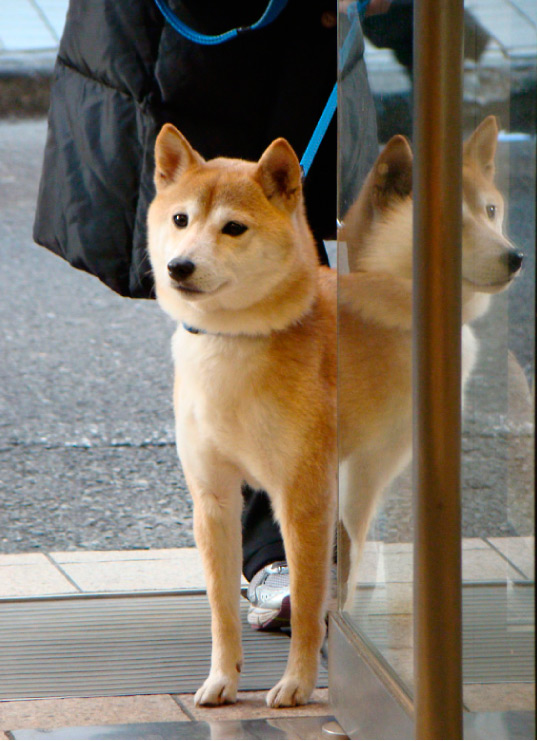
NUMBER 4: JAPANESE REST STOPS
Japanese rest stops are the best! Lots of stands that sell yakitori (skewered chicken), takoyaki (grilled octopus), green tea ice cream, and other local specialties. And too many little souvenirs to choose from, mobile danglies, stationary... And the hot drink vending machines are heaven sent on a snowy day. When you spend six months out of the year on the road, you learn to appreciate a good rest stop.
NUMBER 3: 'HACHI' DOGS
Have you ever seen the movie Hachi: A Dog's Tale? It’s the beautiful film based on a true story about a Japanese Akita dog (Hachiko) who is touchingly loyal to his owner (Richard Gere). Having been brought to tears by the film, I was enraptured by these little dogs seen everywhere in Japan.
NUMBER 2: MIYAJIMA
Miyajima Island near Hiroshima is one of my favorite places in Japan, if not the world. It’s famous for the Otorii Gate, but that’s just one of the things to see, and there is so much more to do.
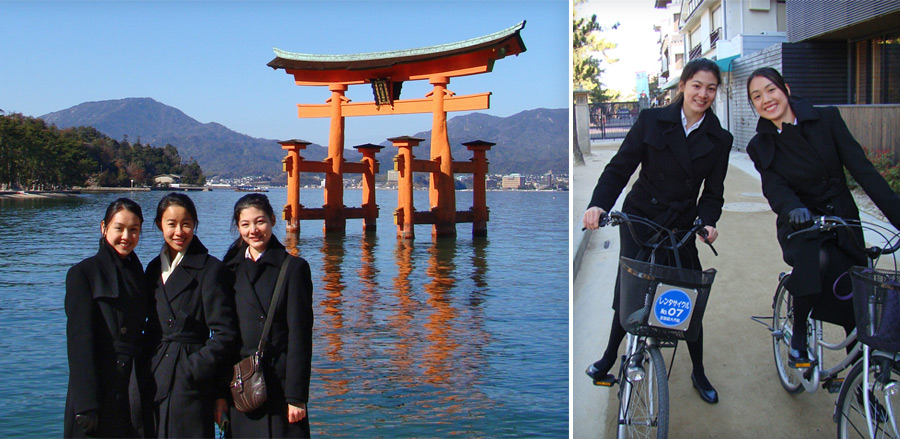
Miyajima is huge, and you’d probably need a couple days to properly explore all the historical sites. We never get enough time, and it’s usually a mad dash, but after my second visit this year, I’ve got my heart set on going again and staying there like a hermit—I’m Miyajima-obsessed.
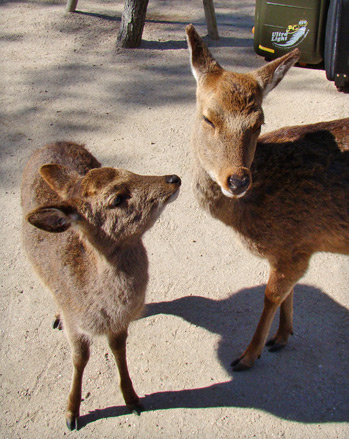
This time we had an hour and a half to play on the island. So to cut the walking time, we rented bicycles and rode them in our pencil skirt suits and heavy wool coats.
I have to mention the Miyajima deer—there’s one deer in particular that gets the Most Outgoing Award. First, he started to sniff at a Japanese girl. Then, drawn in by her 7-11 bag, he bit a hole right through the thing and dragged out her goodies inside. Don’t let their cute innocent eyes fool you—they’re ferocious.
If you’re in the area, you have to give Miyajima a try. Delicious, fresh-off-the-grill oysters, dozens of “treasure chest” trinket stalls… a lovely place it is.
NUMBER 1: THE LANGUAGE BARRIER
I first experienced the language barrier on our second day in Japan, when I wanted to break my large bills at the hotel front desk.
A few years ago, another member of our group—Bob—also went to the front desk to break a note. Bob pulled out a bill and asked the gentleman at reception if he could break it. The poor fellow looked at Bob with wide eyes, not believing what he was hearing. “Break?” he said, pretending to tear the note up. Bob, equally surprised by the man’s reaction goes “No, no, no!” signaling for the man to stop. Then Bob goes, “You know, like break—into little money.” The man at the front desk gasps again, “Huh! Little money?!” Still thinking Bob wants him to the tear it.
Cautioned by this anecdote I approached the front desk prepared for the worst. A gentleman in his early thirties smiled as I walked up. “Hi, can you break my note?” The obviously confused man repeated: “break?” So I pulled out a folded ¥10,000 note asked again if he could break it for me. The man looked at the note dumbfounded for a moment, but then suddenly smiled and nodded as if a light bulb had gone off in his head. “Oh, break, break!” He took the note from me.
Relieved by how easy this turned out to be I handed over my note, smiling and nodding, impressed by his Japanese hospitality. He fiddled with his drawers and then stretched out his hand. As I reached for the money I suddenly pulled back flabbergasted—he was giving me a new, mint ¥10,000 bill in exchange for my faintly tattered one, and I felt like falling to the ground. After recovering, I explained three times that I wanted 1 x ¥5000 and 5 x ¥1000, which the man finally understood and shared the laugh.
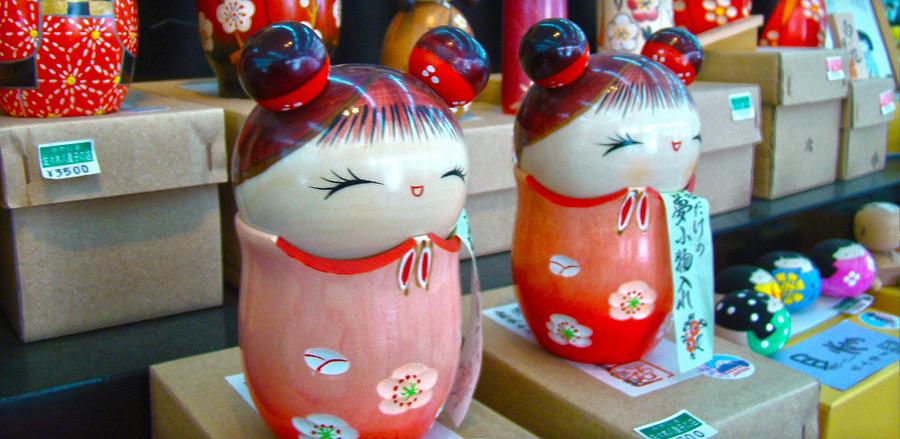

Seron (Guang Ling) Chau
Dancer and soprano
26 mars 2012




